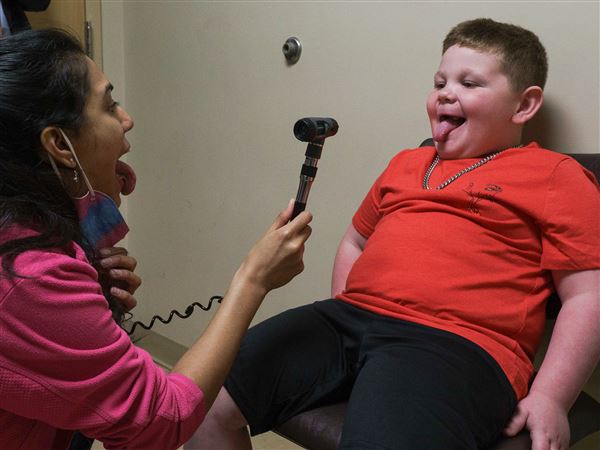Forgetfulness happens to many people as they age. Where did I put the keys? What’s the name of that interesting person I met recently?
It may mean nothing, because the brain doesn’t function quite as sharply after many decades of use, or it could be a treatable condition such as a vitamin deficiency, thyroid problem, stress or depression. Worse, it could be every forgetful aging person’s fear: the first sign of dementia, most commonly in the form of Alzheimer’s disease.
There’s no way to know which of the above it is without a comprehensive evaluation, but some people might benefit from reassurance that they can forgo the full workup. To assist, the Alzheimer’s Foundation of America has expanded a program designed to inform people if their memory lapses are commonplace or if they merit more serious scrutiny.
The New York-based foundation has been arranging sites around the country for years that offer what is known as the Mini-Cog assessment, a widely used screening test lasting just a few minutes. Participants are given three common words, instructed to draw a clock denoting a certain time, and then asked to repeat the three words. If they score poorly from difficulty remembering the words, they are encouraged to visit their primary care physician for more detailed evaluation.
“It’s the first step on an individual’s path to proper treatment,” said foundation president Charles J. Fuschillo. “If you have any concerns about memory, regardless of your age, we encourage people to obtain a screening.”
The foundation recently added the first Pittsburgh-area location to its list of screening sites. It’s a home care services agency in Bethel Park, Preferred Care at Home, although co-owner Amy Kulikowski said it’s not ready to perform the free tests yet. She said a registered nurse on the staff will receive training in order to offer the assessments in November to anyone interested. The tests will be available for a day or two during National Memory Screening Week, the week of Nov. 7.
She said the home care agency — a local franchise of a national company — sees the screenings as a service to the community and all the more appropriate to undertake considering the majority of Preferred Care at Home clients have dementia-related issues.
Alzheimer’s and other forms of dementia can be difficult to diagnose accurately, and the diagnosis is often made by ruling out other conditions that could be affecting memory or causing other symptoms. A general practitioner sometimes relies on a specialist such as a neurologist or psychiatrist to assist in the diagnosis.
At the federally funded Alzheimer Disease Research Center of the University of Pittsburgh, several hundred new patients a year are accepted for a free half-day examination to evaluate their cognitive status, said William Klunk, a psychiatrist who is the center’s co-director. They are given a more thorough mental test than the Mini-Cog assessment, as well as interviews, brain scans and a physical evaluation that Dr. Klunk said combine to diagnose Alzheimer’s and other dementia with greater than 90 percent accuracy.
That accuracy rate is closer to 70 percent in general medical settings, Dr. Klunk said, and he raised concerns that people who score poorly on the type of quick screenings offered by the Alzheimer’s Foundation and Preferred Care at Home may find a lack of help afterward.
“Many primary care physicians are overwhelmed, don’t feel qualified, or don’t have time to spend on dementia evaluation. That’s a real problem now,” Dr. Klunk said.
While Pitt’s center is interested in hearing from anyone 65 and older seeking a comprehensive evaluation, he said, there’s a waiting list of several months and not everyone is accepted. The center prefers evaluating and following on a long-term basis individuals who are potential candidates in research studies, which rules out people with some other serious medical conditions.
As to what memory problems should prompt an evaluation, from whatever medical practitioner, Dr. Klunk said it’s when those issues begin turning from a nuisance into an obstacle to someone’s normal functions.
“It’s when you can’t do what you need to do or have always done,” he said. “It’s often difficult to recognize in yourself, by the nature of the illness, so the most important thing is to have a person around whom you can trust to be the second opinion for you.”
For more information about evaluations at Pitt’s Alzheimer’s center: www.pitt.adrc.edu or 412-692-2700.
Gary Rotstein: grotstein@post-gazette.com
First Published: August 22, 2016, 4:00 a.m.








![“We’re looking at the end product of multiple complicated metabolic pathways and [in patients we studied] we’re finding something missing, and we’re working backwards to replace it,” says Dr. Lisa Pan, a psychiatrist and researcher.](https://9b16f79ca967fd0708d1-2713572fef44aa49ec323e813b06d2d9.ssl.cf2.rackcdn.com/300x_a1-1_cTC/20160818rldLisaPan02-1-1534251930.jpg)







